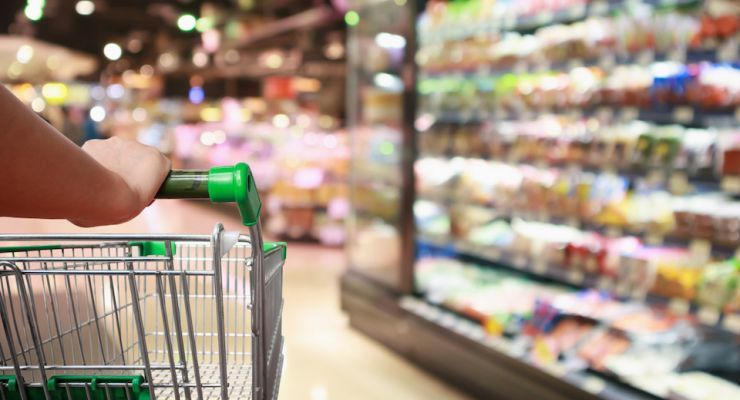While it may be impossible to avoid the grocery store entirely, there are steps you can take to shop smart and maintain good hygiene while you are out. Even if you aren’t “high risk” and don’t see an issue going places, you are still susceptible to the disease and may act as a carrier, giving the virus to someone you love. Everyone has to do their part and come together to help flatten the curve. Follow all recommendations from the CDC and other approved government sources and try these helpful tips to protect yourself (and your family) when you need groceries.
Don’t hoard food
One of the most significant issues regarding grocery shopping in the age of coronavirus is panicked shoppers buying up unnecessary amounts of food and failing to leave enough for other customers. Whether they are concerned about potential future food shortages (which are highly unlikely to happen), believe the grocery stores will eventually close down (also highly unlikely) or are trying to stock up for months to avoid having to go out, these grocery store customers are only contributing to the increasing crisis.
Buy just what you need for a couple of weeks, and be sure to leave plenty of food for everyone else so that grocery stores can keep food on the shelves for those who need it. Remember, not everyone can afford to buy two months’ worth of food at a time, and even if you can, you should exercise restraint at this time and only purchase what you need. America is not experiencing a food shortage, and shipping and manufacturing of goods and food have not been affected by this crisis. Consider adjusting your shopping behavior slightly, but don’t give in to the social pressure of panic buying.
Go when it’s not busy
Since grocery stores are “essential services,” they remain open even when a state is under “shelter in place” orders. Usually, the states that are enacting these orders have put them in place for a reason in the hope of reducing social gatherings and minimizing the spread of COVID-19. Unfortunately, these shelter in place directives often lead people to flock to the grocery stores in droves, which is exactly what officials are trying to avoid. Try to go to the grocery store at its least busy hours, such as early in the morning. Plus, shelf stocking often occurs overnight, so you may be more likely to find what you need.
Minimize your exposure
Use antibacterial wipes to clean off cart handles, avoid touching your face or your phone while you are in the store, and wash your hands as soon as you get home. Keep hand sanitizer in the car and apply it before touching your steering wheel as well. When you get home, wipe down all of the groceries you purchased and be sure to clean your produce thoroughly. You should also disinfect anything else you handled, such as car keys, your wallet or purse, and payment cards. If you did use a reusable grocery bag (which may not be the best idea during this pandemic), you should wash it or sanitize it thoroughly.
Be kind
Don’t rush to grab things off the shelf by pushing in front of people, show consideration for grocery store workers, and be sure to express your gratitude. They don’t have the luxury of staying at home and are risking potential exposure to the coronavirus and working extremely long hours to ensure that customers can still get essential food items. A simple “thank you,” and a kind word goes a long way.
Consider delivery
Many grocery delivery services such as Instacart, Fresh Direct, and Google Express offer fairly inexpensive grocery delivery services, which, while a nice convenience on an average day, is even more helpful during this pandemic. If you or other people in your home are considered “high risk,” or you’d simply like to avoid contact with people to flatten the curve, consider ordering your groceries and having the delivery person leave them on your porch. Be sure to disinfect everything and tip your grocery deliverer well through the app or website you use. Most of these services are fairly inexpensive, and the hassle it saves you, as well as the protection from infection, are well worth the cost.
Most importantly, stay healthy, stay safe, and…stay home!
-Susan Patterson

